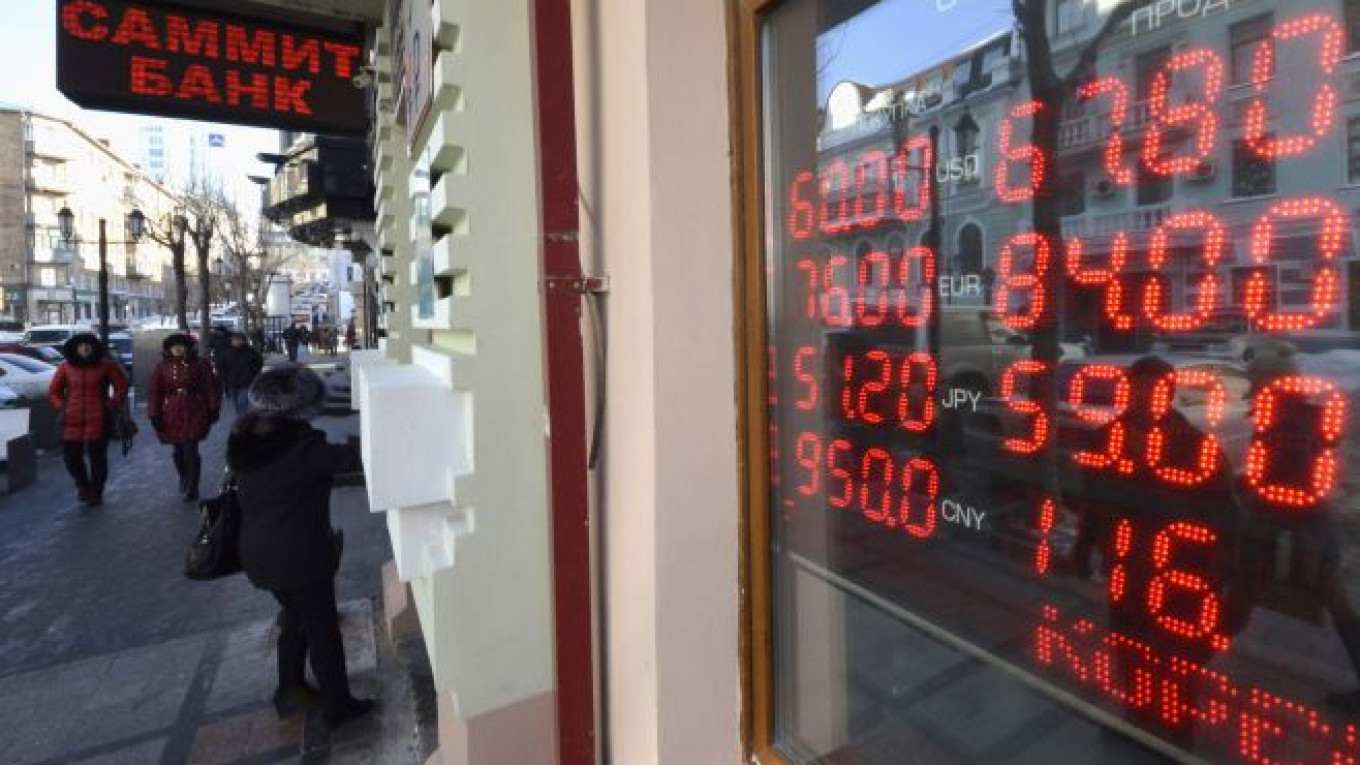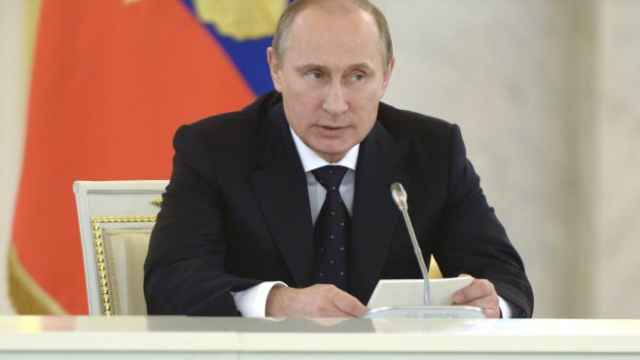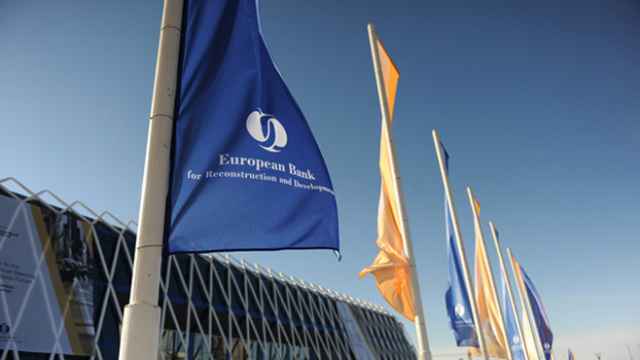The European Bank for Reconstruction and Development (EBRD) will probably report its first loss since the global financial crisis due to turmoil in Russia and Ukraine, the development bank's Vice President Andras Simor said Wednesday.
Simor said a fall in the value of its Russian equity investments due to the ruble's slide as well as provisions against other losses in both countries meant an overall loss for 2014 was likely.
The EBRD has suffered only five annual losses since it was created in 1991 originally to invest in the former Soviet bloc countries of eastern Europe, most recently in the crisis years of 2008 and 2009.
Now it faces major write-downs due to the sharp drop in the ruble and Ukraine's hryvnia currency since Moscow's annexation of Crimea in March, which prompted Western sanctions, and the plunging price of oil, Russia's main export earner.
"We will probably end up with a loss at the end of the year [2014]," Simor said in an interview. "But that is exclusively down to valuation [of the Russian equity portfolio] and provisioning."
Since its creation, the EBRD has expanded beyond the ex-communist countries. But Russia remains its biggest area of activity with 5.8 billion euros invested in the country in the form of equities, project loans and other forms of financing. Ukraine is third biggest, behind Turkey, with 3 billion.
About a quarter of the bank's overall exposure is to Russia, with 10 percent to Ukraine, where an uprising by pro-Russian rebels in the east has helped to shatter its economy.
"The devaluation of the ruble has hit the value of our equity portfolio and we have to accept that," said Simor. "Our role is not only to be there when the sun shines, but also in the storms."
The Russian equity portfolio was worth an estimated 3.2 billion euros at the start of 2014 but the 35 percent drop in the ruble against the euro since then will wipe over a billion off that value.
Simor, the former head of Hungary's central bank, said this 35 percent drop would be "a good guide" for the losses its equities portfolio were likely to have suffered.
The overall 2014 shortfall is not expected to be as steep as the near 1.4 billion euro combined losses in 2008 and 2009, thanks largely to profits made in other countries such as Turkey where the EBRD is building up its presence.
Previous Criticism
The concentration of EBRD investment in Russia and Ukraine was examined by a group of staff and external experts during the financial crisis. Their findings were particularly scathing over the way the bank had continued to pour money into Ukraine as its troubles escalated in 2007 and 2008, forcing Kiev into one of its previous failed IMF programs.
"The near-doubling of the Bank's portfolio in Ukraine by almost 1 billion euro in the pre-crisis period appeared to have occurred in a policy vacuum about the country at the Bank," the report said.
"The additional 1 billion euro crisis response, together with the late recognition in the Bank that Ukrainian country risk had deteriorated significantly, drove the Bank's exposure far above its own credit trigger, with no subsequent reaction."
Amid the current worst standoff between the West and Russia since the Cold War, the EBRD has again ramped up its activities in Ukraine. However, it also cut its funding in Russia by two-thirds last year and is not doing any new projects in what has traditionally been its biggest country of operation.
Simor said the EBRD wanted to be ready to go back into Russia if its shareholders lifted the curbs, but it also needed to stay flexible and line up projects in other countries.
"We are working very hard to keep our relations with Russia alive," he said. "We haven't moved any of our staff out. We need to be ready for if the situation changes."
A Message from The Moscow Times:
Dear readers,
We are facing unprecedented challenges. Russia's Prosecutor General's Office has designated The Moscow Times as an "undesirable" organization, criminalizing our work and putting our staff at risk of prosecution. This follows our earlier unjust labeling as a "foreign agent."
These actions are direct attempts to silence independent journalism in Russia. The authorities claim our work "discredits the decisions of the Russian leadership." We see things differently: we strive to provide accurate, unbiased reporting on Russia.
We, the journalists of The Moscow Times, refuse to be silenced. But to continue our work, we need your help.
Your support, no matter how small, makes a world of difference. If you can, please support us monthly starting from just $2. It's quick to set up, and every contribution makes a significant impact.
By supporting The Moscow Times, you're defending open, independent journalism in the face of repression. Thank you for standing with us.
Remind me later.






